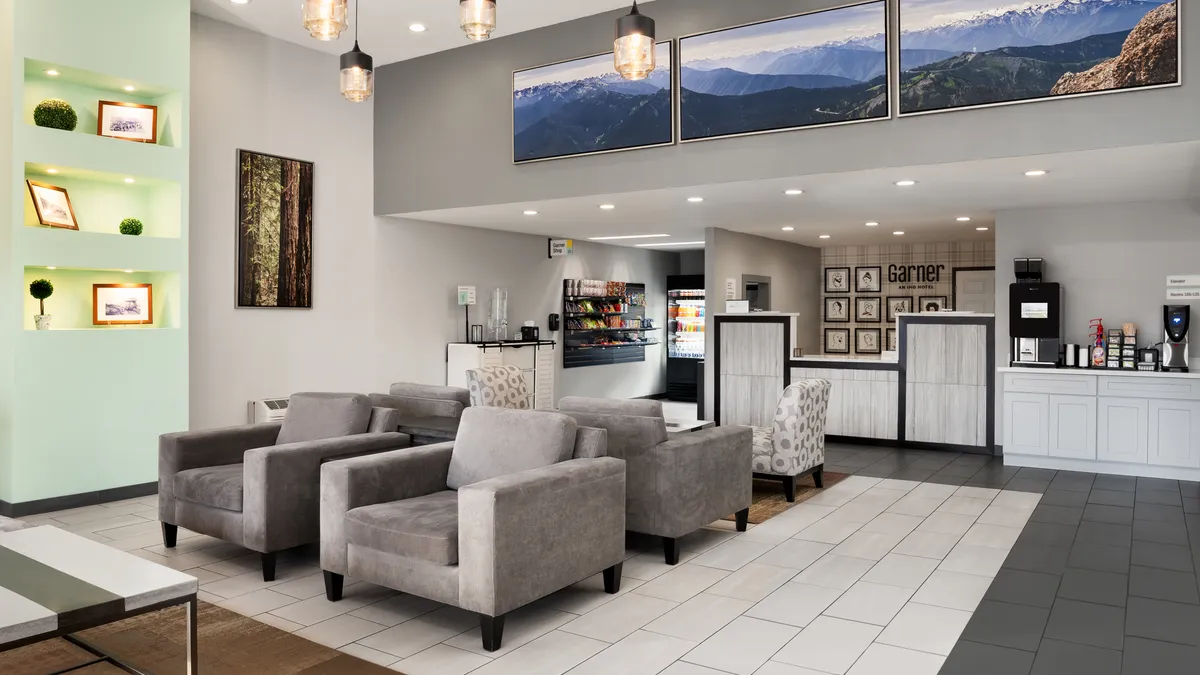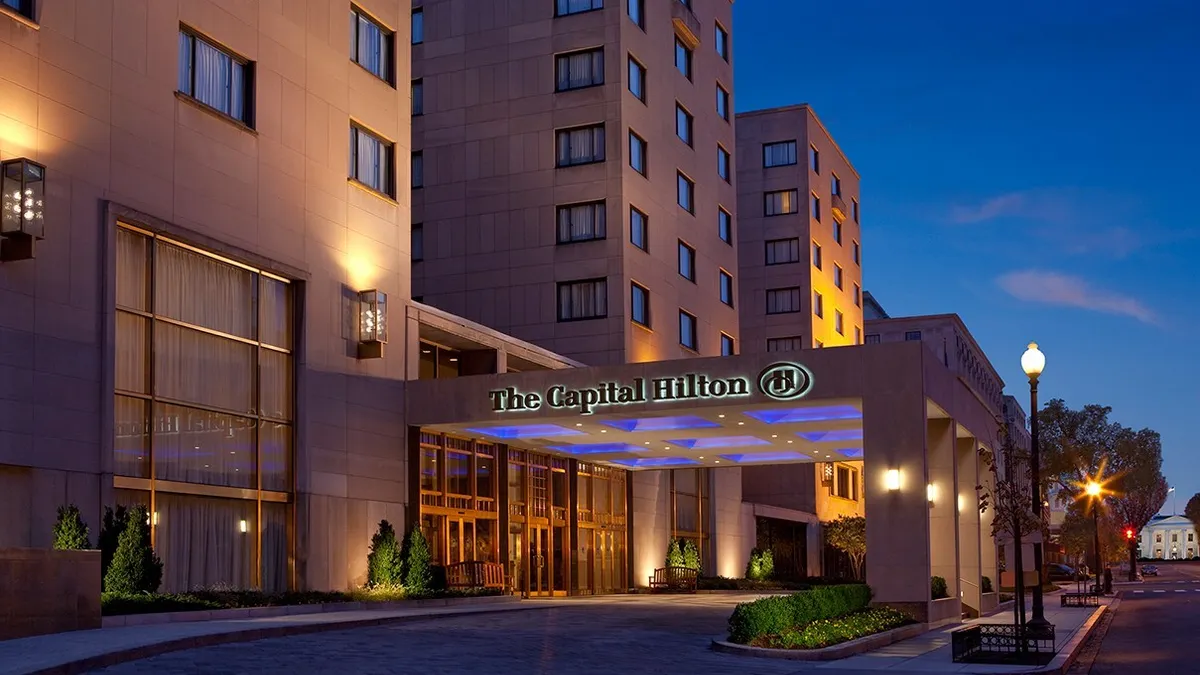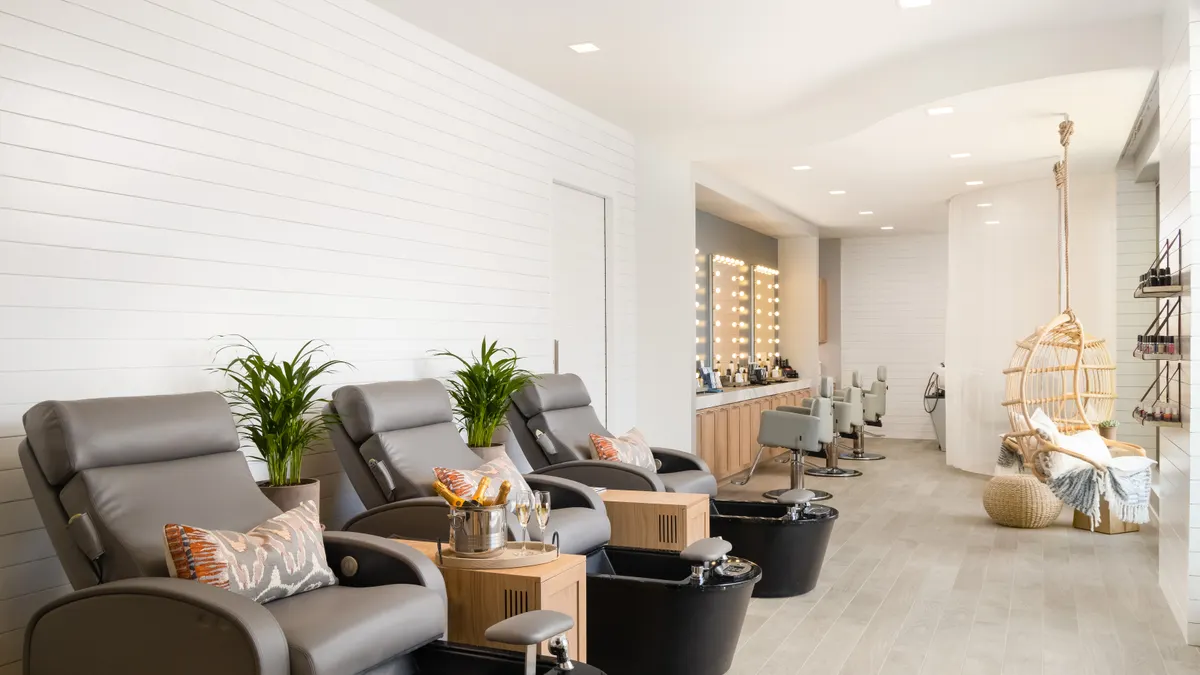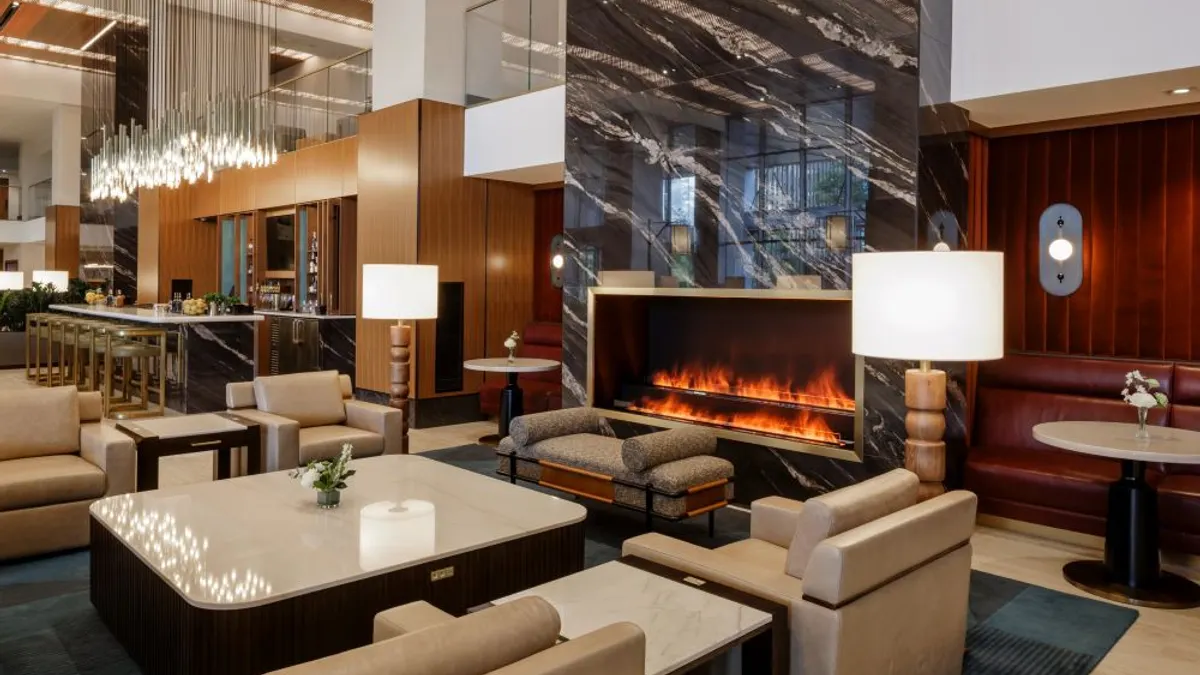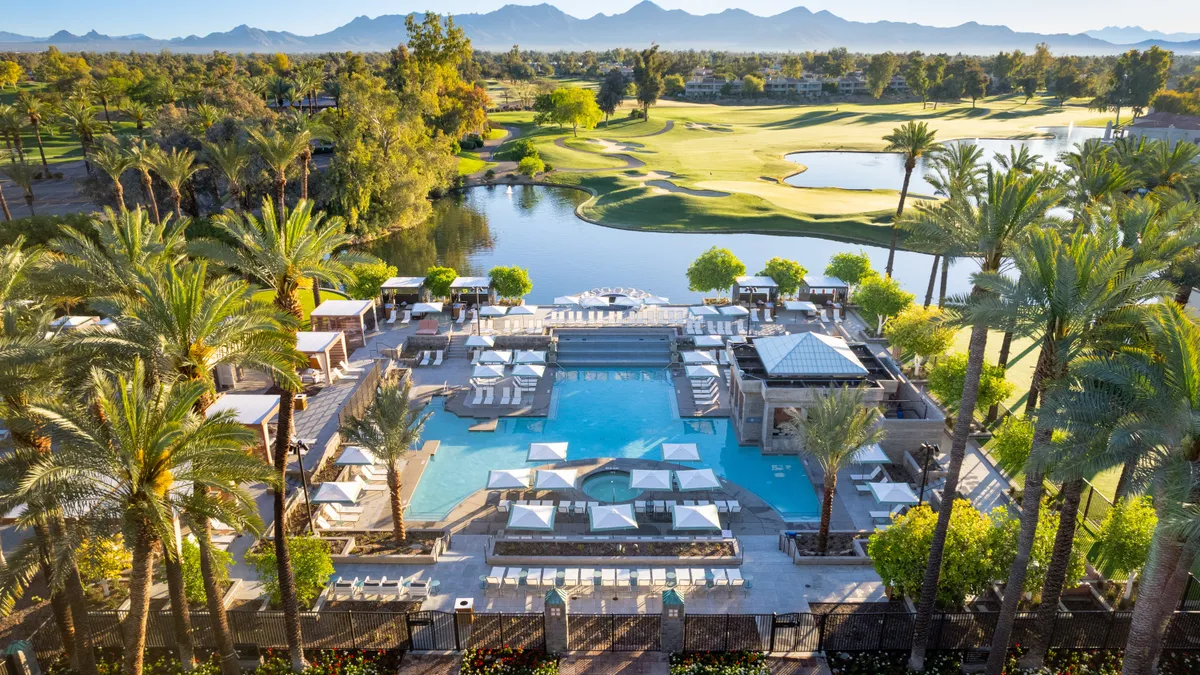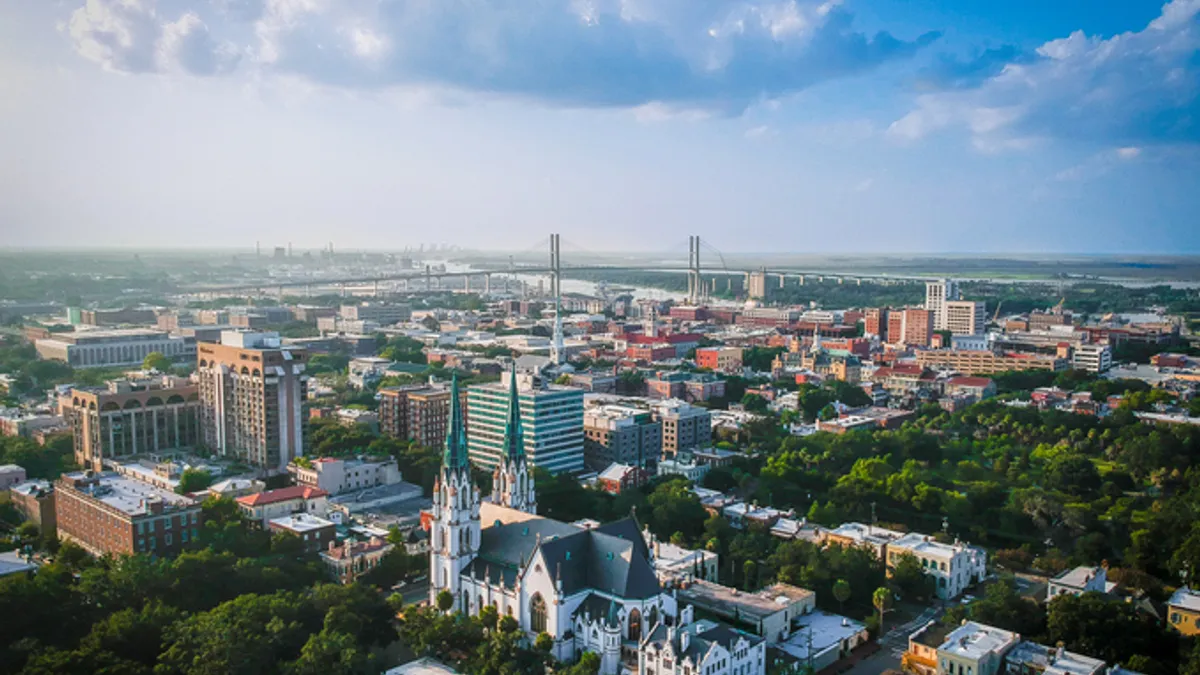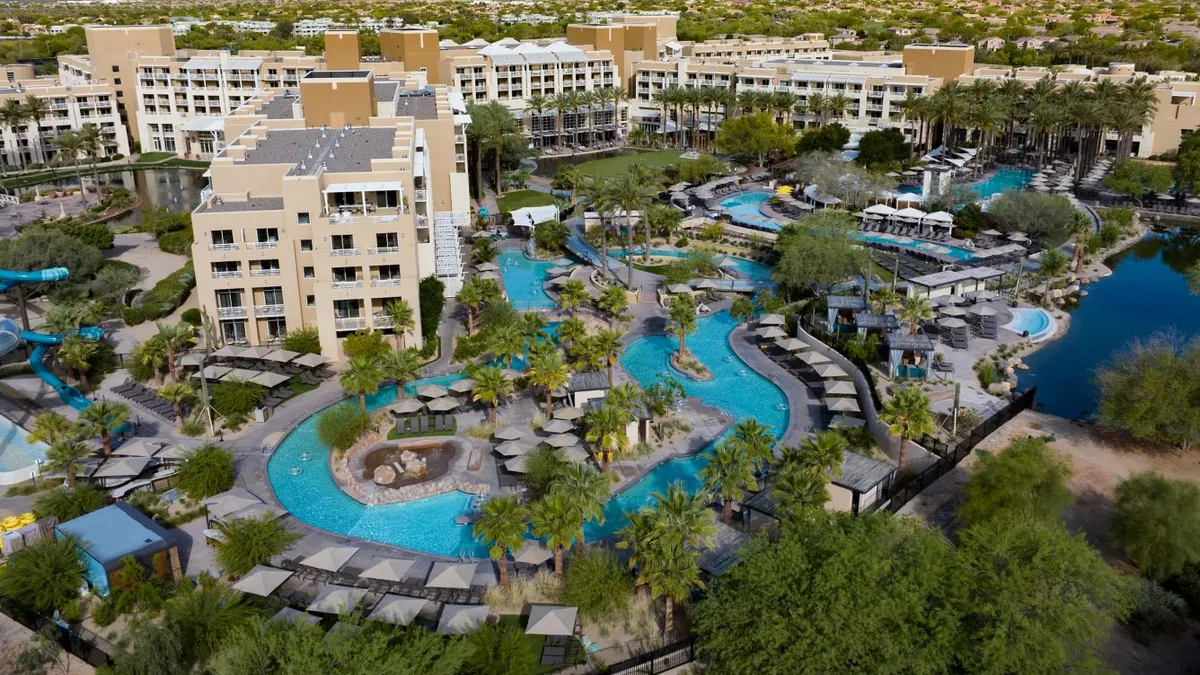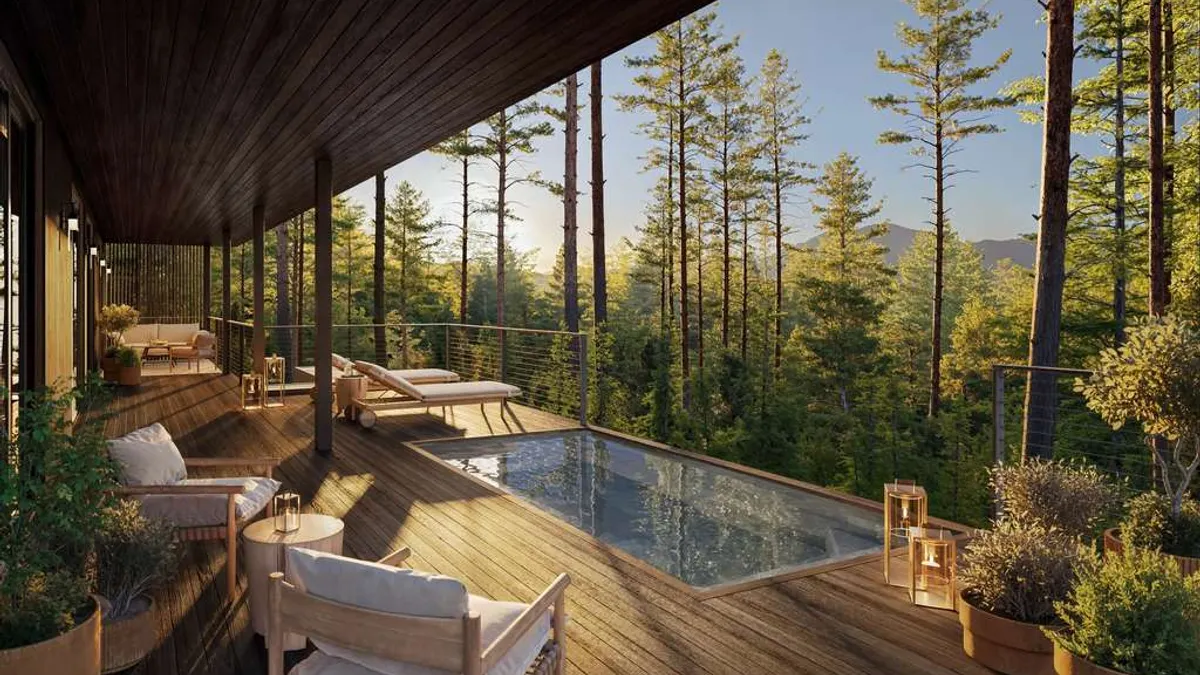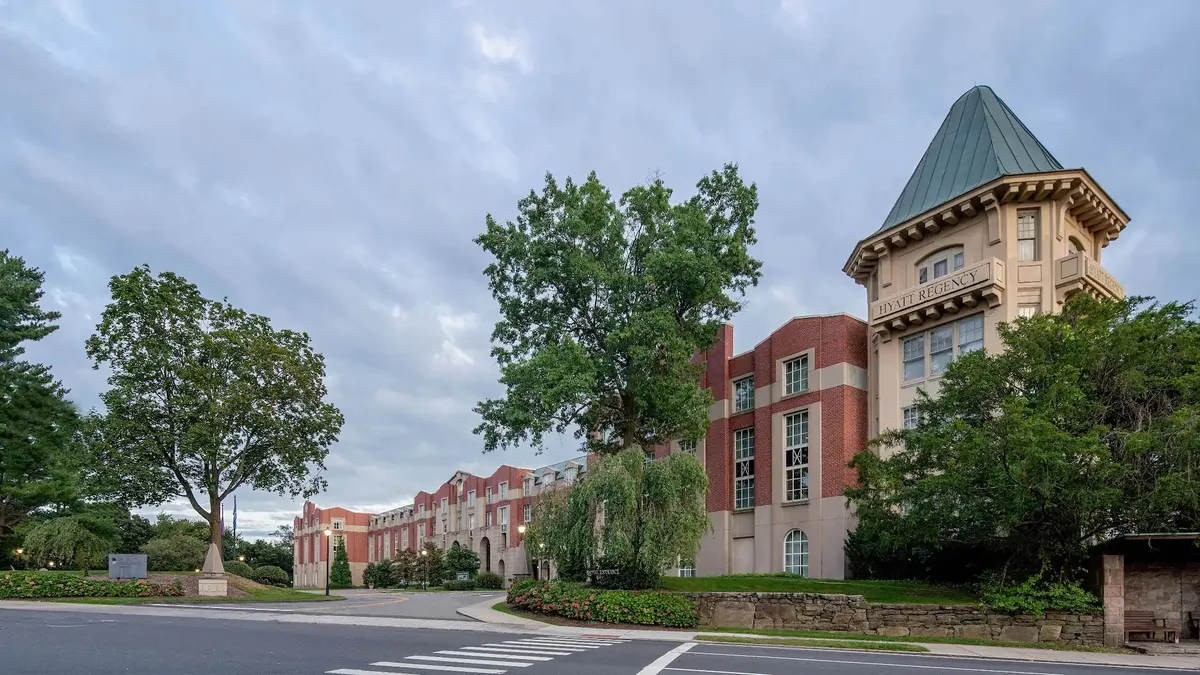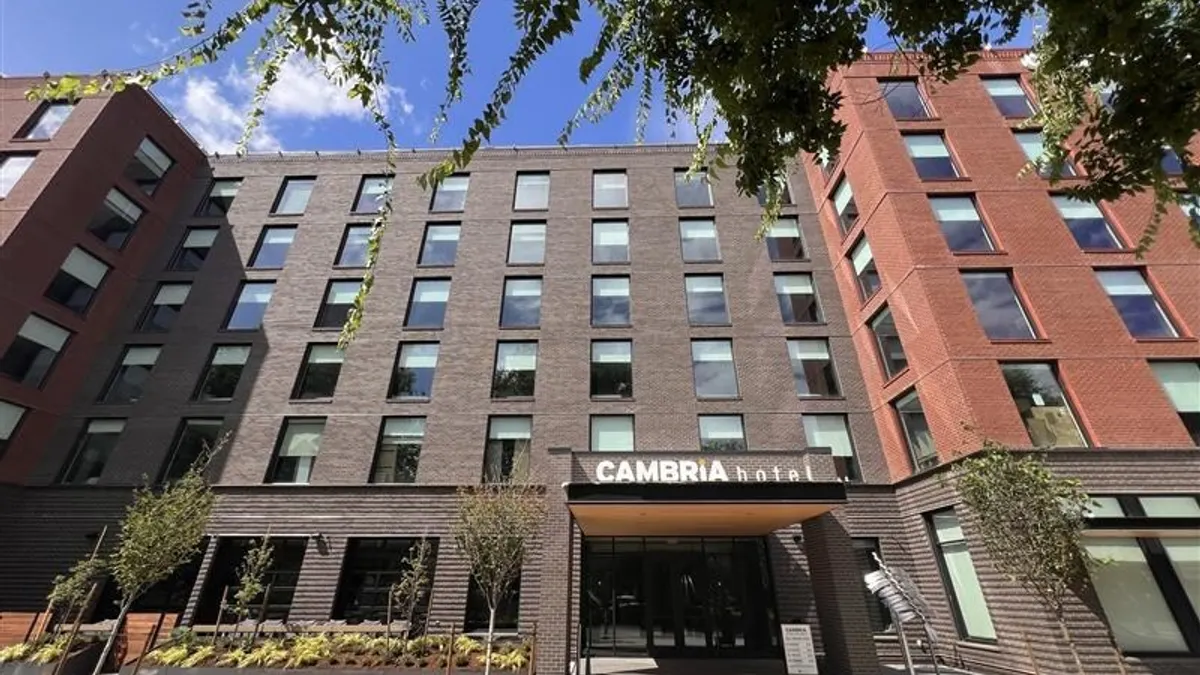When IHG Hotels & Resorts launched its newest brand, the midscale conversion chain Garner, in August, it came out swinging. The company said it planned to open 500 of the brand’s hotels over the next 10 years, and 1,000 in 20 years, in the U.S. alone.
It’s an ambitious project, but one the company has already made strides toward. The first Garner opened in Auburn, Washington, less than three months after the brand’s launch. Properties in Macon, Georgia, and Oklahoma City quickly followed. And last month, Garner announced that franchising would be available in Mexico and Canada as of March — and that plans to expand in Japan were already underway.
“We are really bullish and excited about where Garner can go,” said Karen Gilbride, IHG’s vice president for Garner, Avid Hotels and Atwell Suites.
Calling from IHG’s Design Center in Atlanta — where the company tests out room concepts and hotel tech — Gilbride spoke with Hotel Dive about the vision behind Garner, the strength of the lower midscale segment and how her team is able to scale conversion properties so quickly.
This interview has been edited for clarity and brevity.
HOTEL DIVE: Garner’s expansion plans are ambitious and seem to be moving quickly. What’s the vision behind the brand?
KAREN GILBRIDE: For one, opportunity. Garner was our 19th brand that we brought into the IHG portfolio. And when we look at whether or not we're going to bring a new brand in — whether it's organic or through acquisition — we’re looking at the portfolio and saying, “Do we have a brand available that meets the consumer demand and the owner demand?” If we already have something, great, we should be moving guests and owners to that particular brand. But when there is an opportunity, then it’s the right time.
If we think about the mid to lower midscale segment where Garner is, we have phenomenal brands in the new construction space, but we didn't have a conversion brand. So we wanted to deliver a product that was high quality, providing those basics that matter in that lower midscale space, with owners who already had assets.
We made the decision to [work toward launching a new brand] back in May, and then stood up a team that worked really quickly to define what's a different offer in this space. How do we differentiate from the competition, and also from [our own] brands, and then bring all of that to life?
The first Garner property opened in December. How were you able to open it so quickly?
We are taking a flexible approach to these conversions. What that means is every time we have an owner who says, “I'm interested, I have an asset,” and we think it's a right mix from a demand perspective, our Property Improvement Plan team will actually visit that hotel and write a custom property improvement plan. They’re looking at the furniture, the case goods and the building itself, and if things have what we call “useful life.” Maybe it's an owner who did a renovation three, four years ago, and their case goods are not ready to go to a whole new renovation — they have useful life, so we will allow for that useful life.
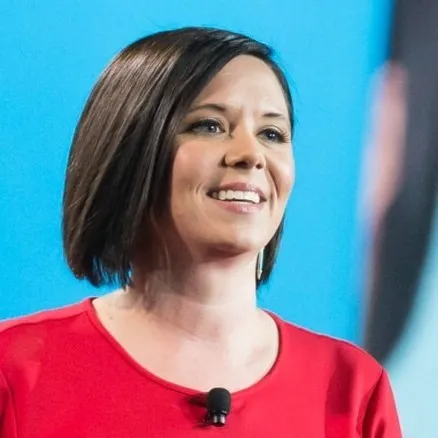
If things don't need to go to the landfill for another five, six years, why would we require that? The guest is actually telling us in this space that they’re open to a little bit of design flexibility from property to property, as long as they know they’re going to get those consistent experiences again: a great night's sleep, a clean environment, a great location, good breakfast, reward points. They’re okay if actually the couch in the lobby is blue at this hotel, and tan at another.
Those couple of hotels that opened within 90 days of executing their licenses really only needed the core requirements and the brand hallmarks updated. They didn't need a renovation. They needed our bulk amenities, and they needed to take out the breakfast that they were delivering and install our breakfast. Those elements actually have very short lead times. And we could accomplish those — plus putting in the technology, doing the training, getting those hotels ready — in relatively quick order.
How do you go about building awareness of a new brand among travelers and guests?
In a very focused way. We want to make sure that we're targeting guests that are going to be able to learn about Garner where there is a Garner, and when you're growing a brand, you don't have them everywhere. This brand will scale, but while we're in micro in these markets now, we have to be very targeted. So it's a lot of out-of-home advertising within the local areas, targeted social media and also leveraging our own channels. As we're bringing new Garners on, we have a bespoke property improvement plan, but also a bespoke marketing plan for each of those areas as we continue to grow and scale.
How are you working to attract potential owners?
It's about relationships, so our development team is out there every single day communicating with owners. A lot of it is owners who have been saying they have something that could go in the lower midscale space, when we didn't have Garner hotels yet.
What's been really exciting is that while, yes, it's established owners that are coming to Garner, it's also a lot of new owners to IHG. For our Auburn, Washington, hotel, it was their first IHG hotel. We love to see that.
How do you decide what markets to enter the brand into?
Within the U.S., we see Garner as one of our growth engines as we go forward. This brand can work in secondary and tertiary markets, and also some primary markets. We see it operating where we see Holiday Inn Expresses and Avid Hotels, which is everywhere [laughs]. They can work wherever you have people who are looking for one- to two-night stays, value and affordability. It can be business or it can be leisure.
What's great about Garner is it's about existing assets, so these hotels have shown that there was demand in those markets. Now it's about how we can take that asset, and by bringing it into IHG, deliver more.
You also announced global expansion plans. How might Garner’s strategy change outside of the U.S.?
Because we are a global hotel company, it was always the view that Garner would probably start in some of our core markets, like the U.S., and grow from there. Conversions are very important to the industry right now. That's not only a dynamic that's happened across the U.S. In recent years, this dynamic is in a lot of different places.
I also think about the amount of travel demand. We see a growing middle class not only within the U.S., but in markets around the world, really at huge rates. And if we look at the lower affordability stays, that's going to hit a lot of what you see in that growing middle class. In the U.S. alone, it's a $14 billion segment that's going to grow to $18 billion by 2030. This segment is incredibly important, and it's a big part of what we do.
Every Garner hotel features a ‘cookie happy hour.’ What is that, exactly?
Exactly what it sounds like. The best part of the day. It’s over two hours, usually between 4 and 6 p.m., but hotels can flex it. They bake chocolate chip cookies and put them out at the front desk. It's just meant to be a small gesture, a small nod. We try to think about really small things with a low investment from an owner perspective, but that delivers so much more than what a guest expects at this price point. And who doesn't love the smell of cookies when they're coming in somewhere?



